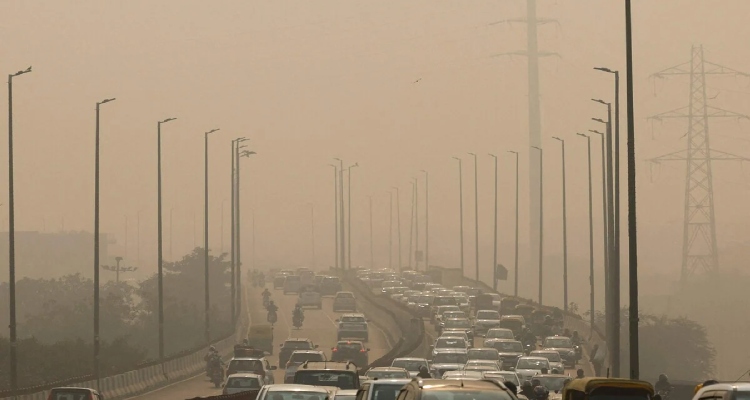
In response to the worsening air quality in the National Capital Region (NCR), the Sub-Committee of the Commission for Air Quality Management (CAQM) activated Stage IV of the Graded Response Action Plan (GRAP) on Monday night.
This decision came after Delhi’s Air Quality Index (AQI) surpassed the critical threshold of 400, escalating from 399 at 9 PM to 401 at 10 PM.
The CAQM Sub-Committee convened an emergency meeting to evaluate the rapidly deteriorating air quality. The primary cause was identified as highly unfavorable meteorological conditions, including a significant drop in wind speed and a decrease in the atmospheric mixing layer height. These conditions hindered the dispersion of pollutants, causing them to become trapped and contributing to sustained high AQI levels.
In a formal order issued on December 16, RK Agrawal, Director of the Sub-Committee on GRAP, stated, “In pursuance of the Supreme Court’s directives, the Sub-Committee hereby invokes Stage-IV of the Schedule under the GRAP, as comprehensively revised and issued on December 13, 2024, with immediate effect. The actions under Stage-IV shall be over and above the actions under Stages III, II, and I, already in force.” This decision was made in compliance with the Supreme Court’s guidelines, which mandate Stage-III measures when the AQI exceeds 350 and Stage-IV when it exceeds 400.
The reimposition of Stage-III measures earlier had been triggered by the failure of pollutant dispersion, further exacerbated by stagnant weather conditions. By Monday evening, the AQI had reached a critical point, hovering near 400, before crossing the threshold and prompting the immediate activation of Stage IV actions.
The GRAP framework, which was updated on December 13, outlines a tiered response system to address varying levels of air pollution. Managed by the CAQM, the plan includes specific interventions to reduce particulate matter and other pollutants during peak pollution periods.
The move to Stage IV highlights the severity of the air quality crisis in Delhi and the broader NCR. AQI levels have remained in the ‘severe’ and ‘very poor’ categories, posing significant health risks, particularly for vulnerable groups such as children, the elderly, and individuals with preexisting lung or heart conditions. Prolonged exposure to such high levels of pollutants demands immediate public health measures and robust mitigation strategies.
Authorities have urged residents to limit outdoor activities, wear protective masks, and follow health guidelines to reduce exposure. The enforcement of Stage IV measures underscores the urgency of the pollution crisis and the need for collective action to address the root causes of air quality deterioration in Delhi.
Read More: Supreme Court, Delhi High Court, States High Court, International




